19 Dec 2023
Oxford Researchers win top award at leading international conference
Researchers from the Department of Engineering Science won the Best Paper Award at the 28th International Conference on Optical Fiber Sensors in Hamamatsu, Japan
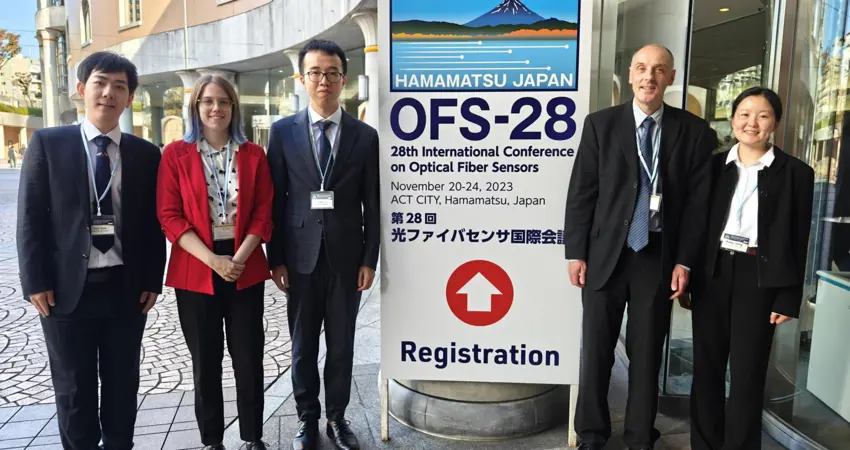
The Oxford team, L-R: Zipei Song, Eleanor Warrington, Tongyu Liu, Julian Fells, Mohan Wang
The International Conference on Optical Fiber Sensors is the leading conference in the field and is hosted every 18 months at a different international venue. The conference covers the many different ways in which optical fibers can be used to remotely sense equipment in order to enhance safety, security, and performance. Using optical fibers for remote sensing has many advantages since the fibers are very thin (the thickness of human hair) and there is no electrical current in the sensing region – instead light is sent down the fiber. Optical fibers can withstand high temperatures and pressures as well as corrosive environments. Importantly, they are unaffected by electrical interference and can be used in environments with ignitable gases.
The conference was attended by around 450 academics and industrialists from around the world. The papers presented at the conference were selected following “double-blind“ review of submitted manuscripts by a Technical Programme Committee of 50 leading experts in the field. The Oxford Engineering Optical Fiber Sensors team presented four papers which all generated significant interest.
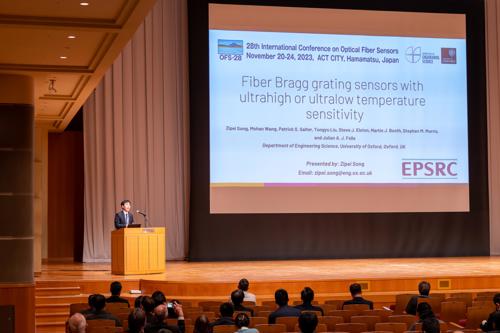 Doctoral student Zipei Song (pictured Left, presenting) received the Best Paper Award for his work on making optical fiber sensors that are either temperature-insensitive or alternatively extremely temperature sensitive. The paper reports significant developments that enable optical fiber sensors to be able to adequately distinguish between strain (stretching) and temperature – a major problem which has existed for 45 years.
Doctoral student Zipei Song (pictured Left, presenting) received the Best Paper Award for his work on making optical fiber sensors that are either temperature-insensitive or alternatively extremely temperature sensitive. The paper reports significant developments that enable optical fiber sensors to be able to adequately distinguish between strain (stretching) and temperature – a major problem which has existed for 45 years.
Upon receipt of the award, Zipei Song said: “It has been a great honour to win this award and I want to thank all the co-authors that worked with me on this project. I also thank the conference organisers and the Technical Programme Committee."
Also at the conference, Doctoral students Eleanor Warrington and Tongyu Lui presented their work on using hollow core optical fibers to detect gas concentration and optical fiber pressure sensors, respectively. Research Associate Dr. Mohan Wang presented her recent breakthroughs on sapphire optical fiber temperature sensors, showing experimental results up to 1200°C.
Dr Julian Fells research leader and supervisor said: “It is fantastic to have our work recognised at such a leading conference. We have also recently been awarded funding to translate our research in this field into commercial products.”
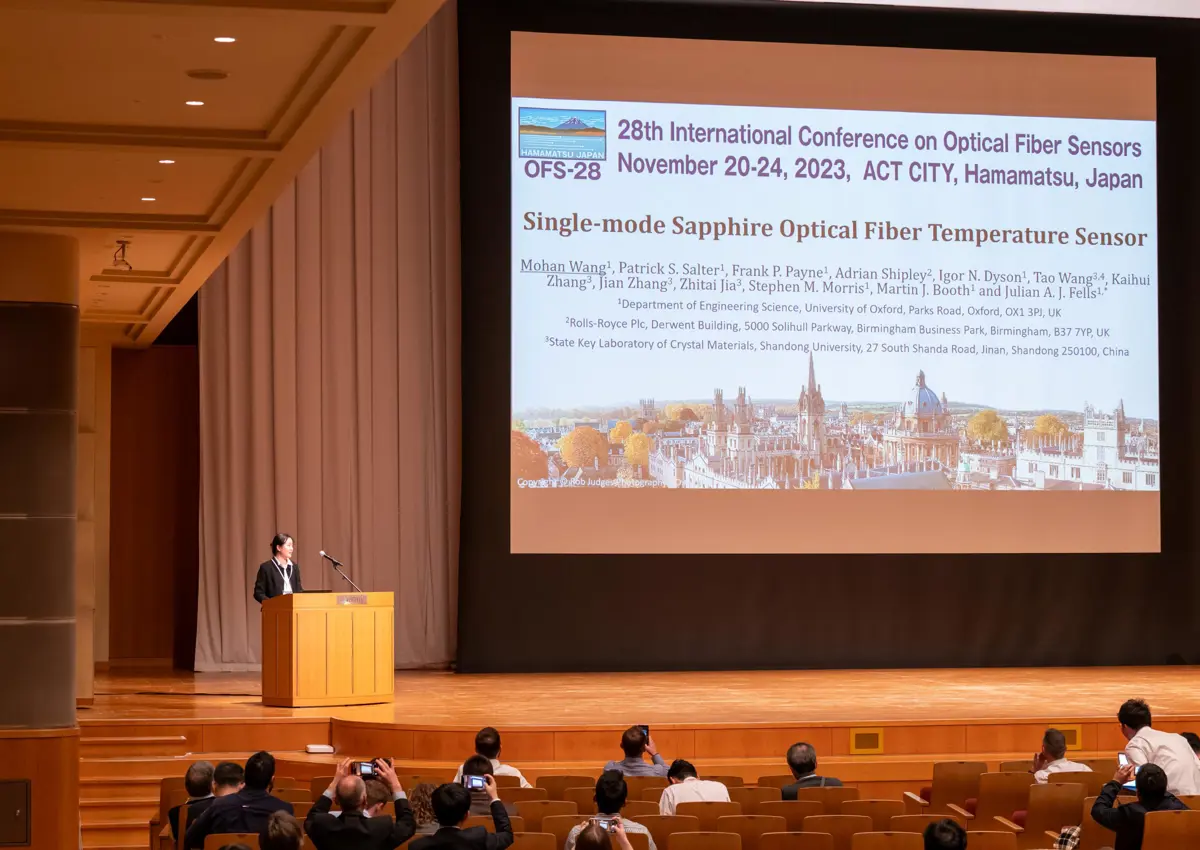
Dr Mohan Wang presenting

Doctoral student Eleanor Warrington presenting
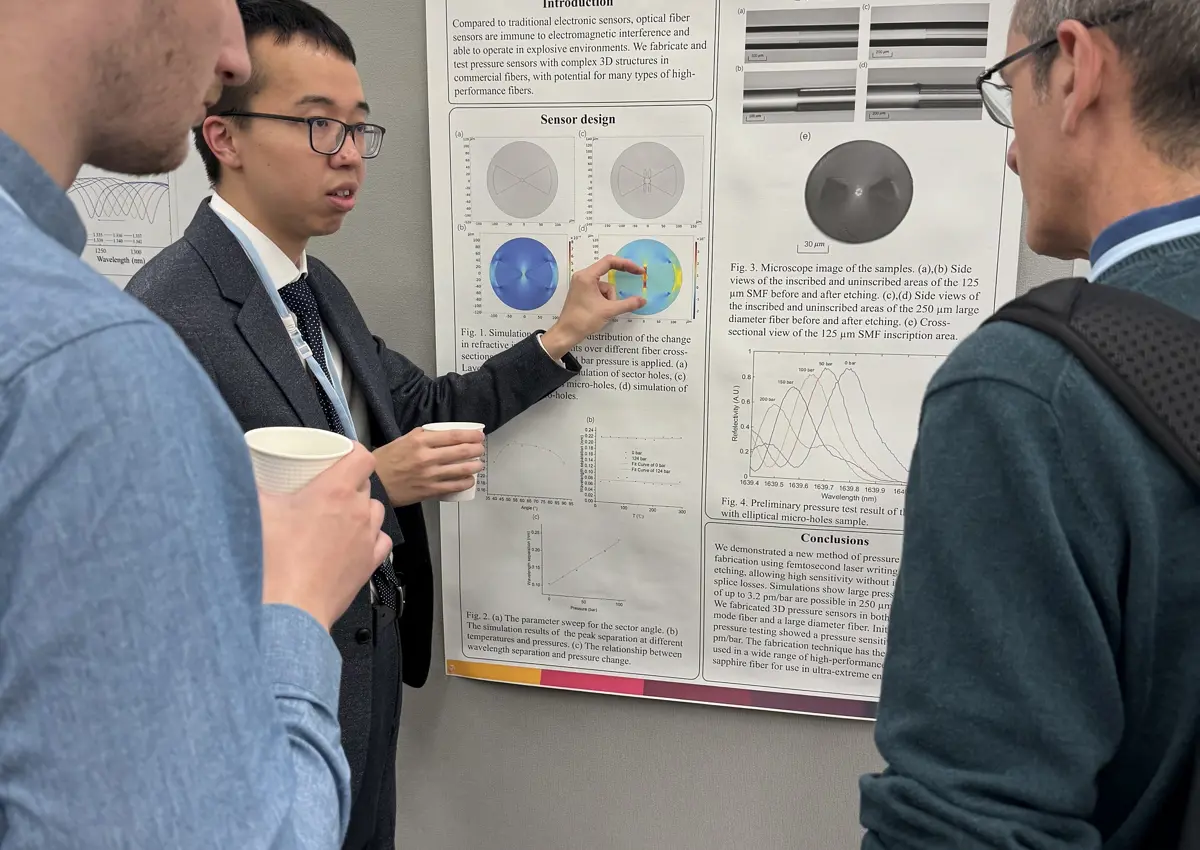
Doctoral student Tongyu Lui presenting

Acceptance Speech (L-R Julian Fells, Zipei Song)
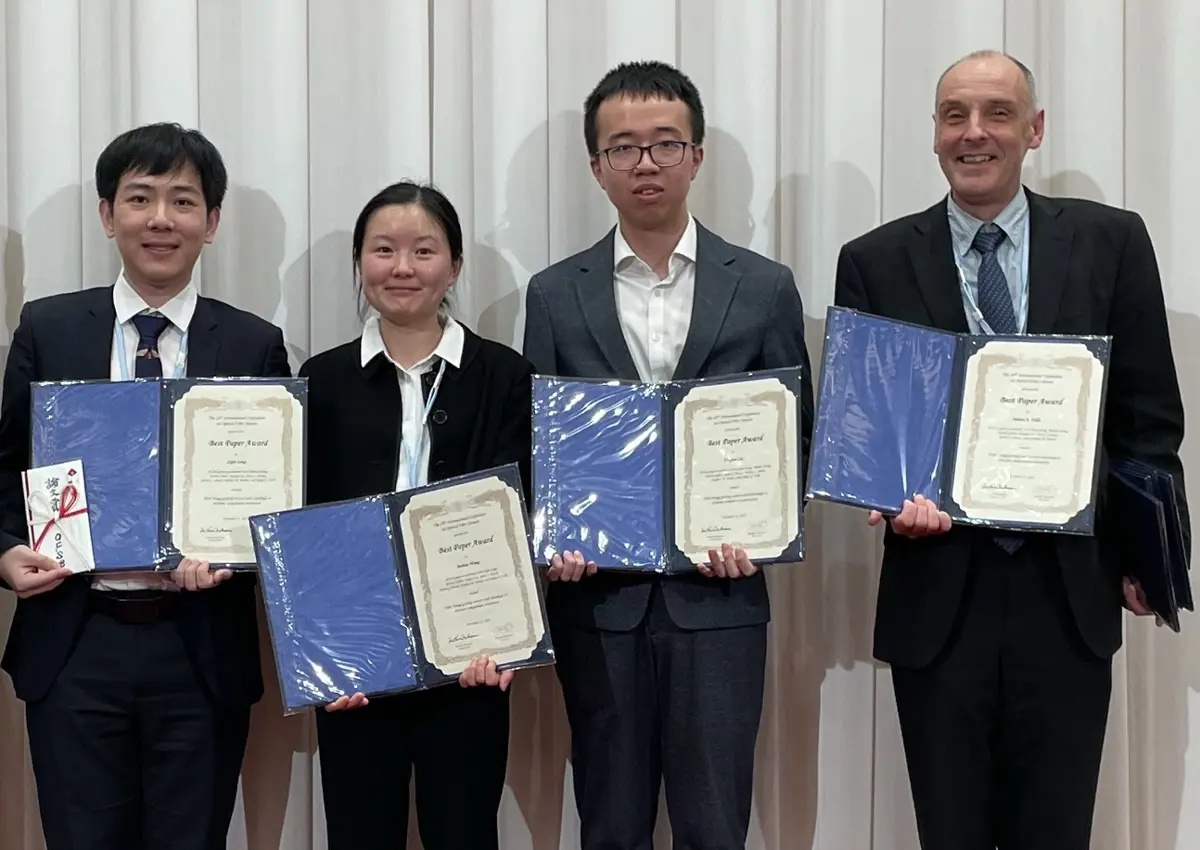
Team with award certificates (L-R Zipei Son, Mohan Wang, Tongyu Liu, Julian Fells)




